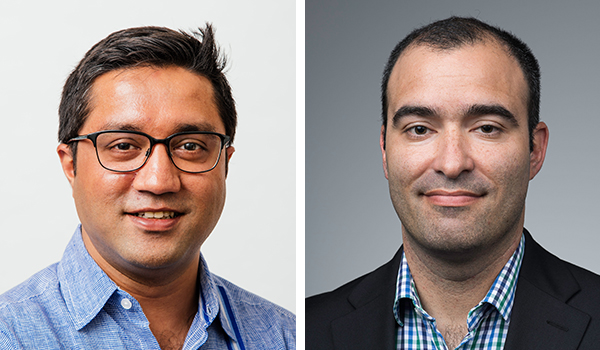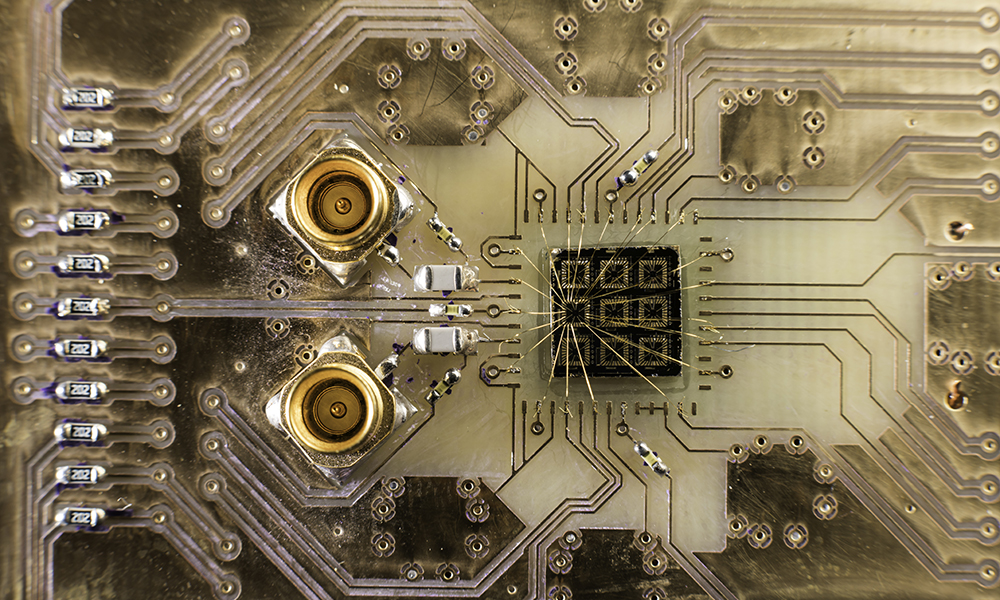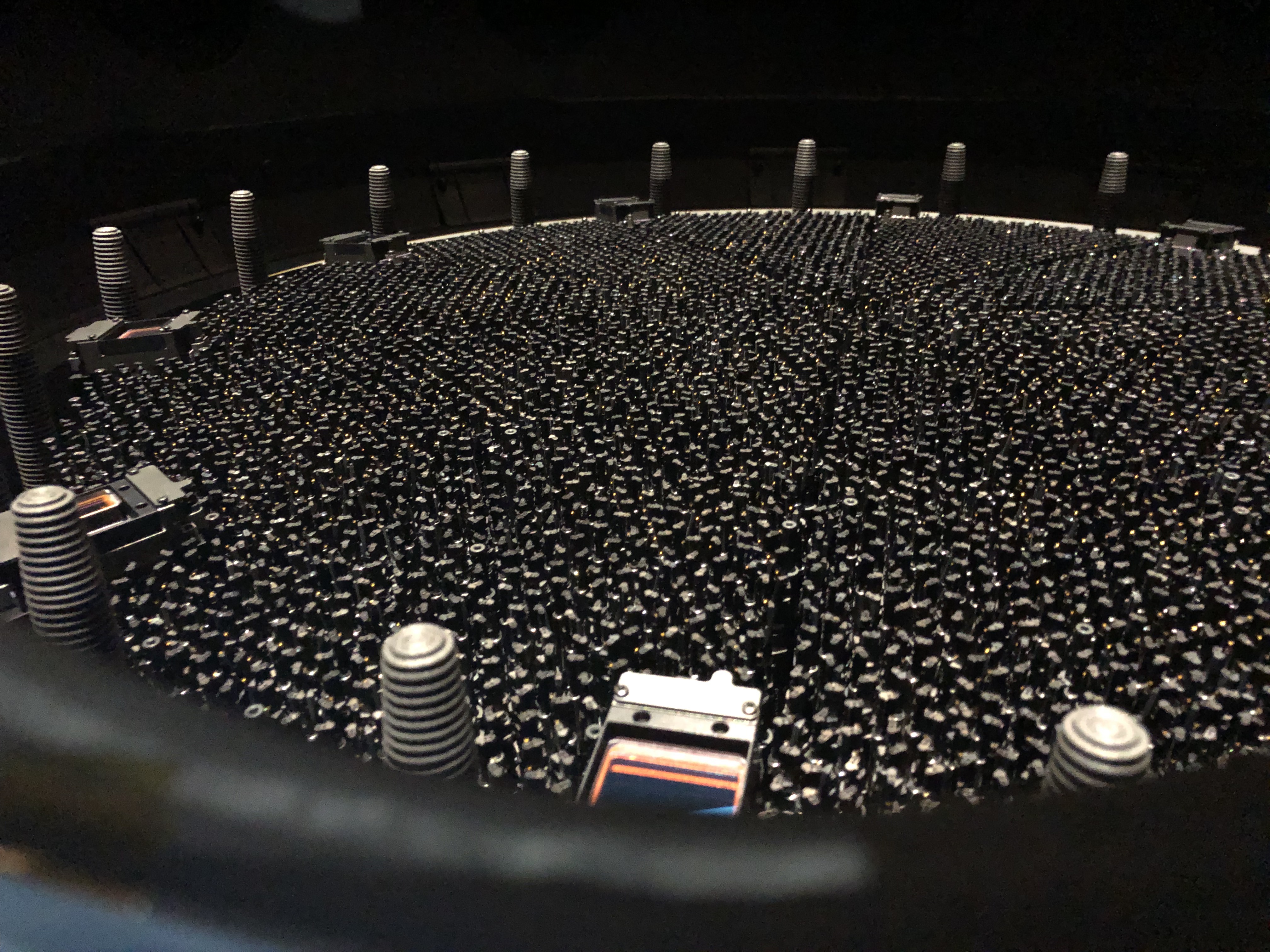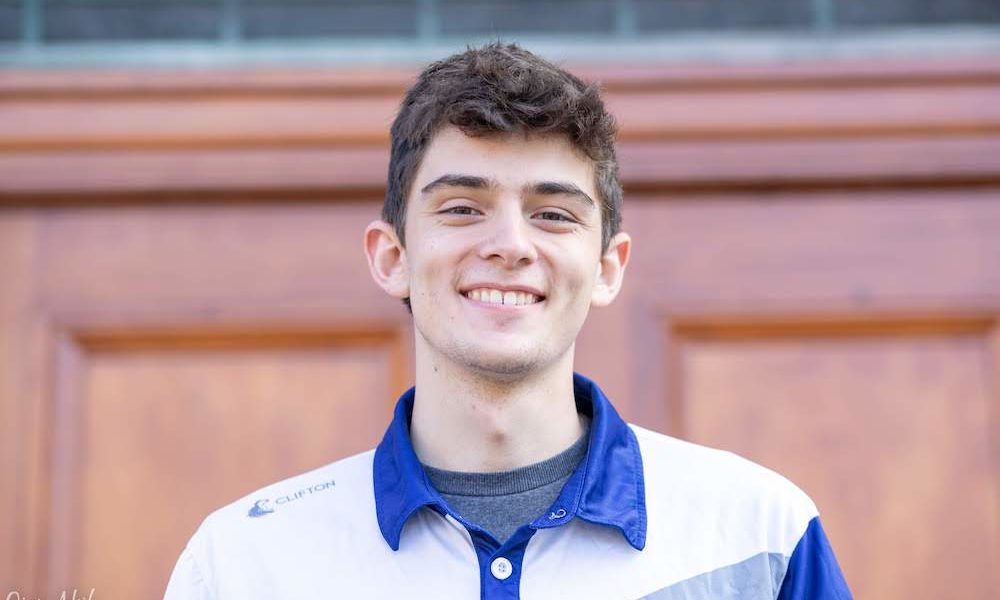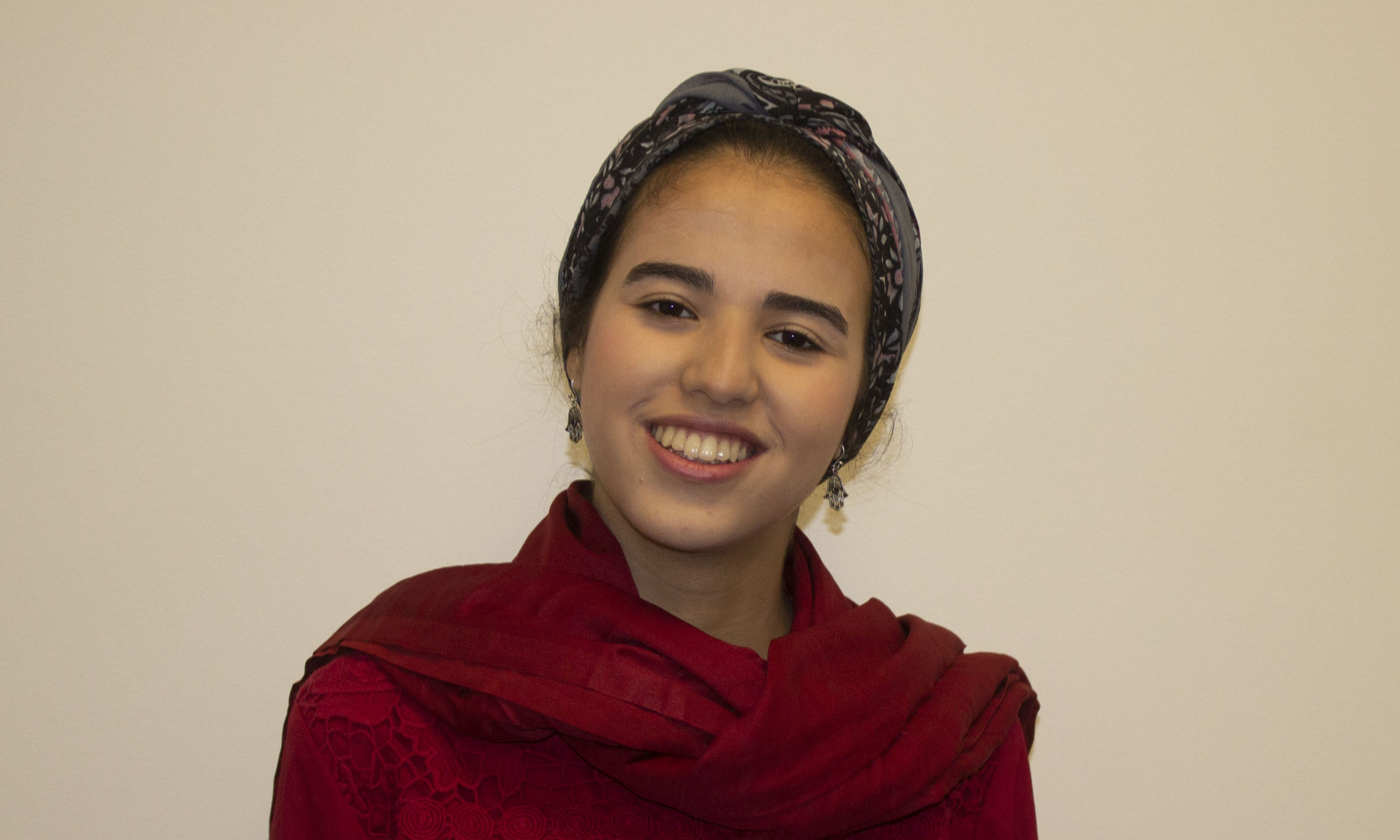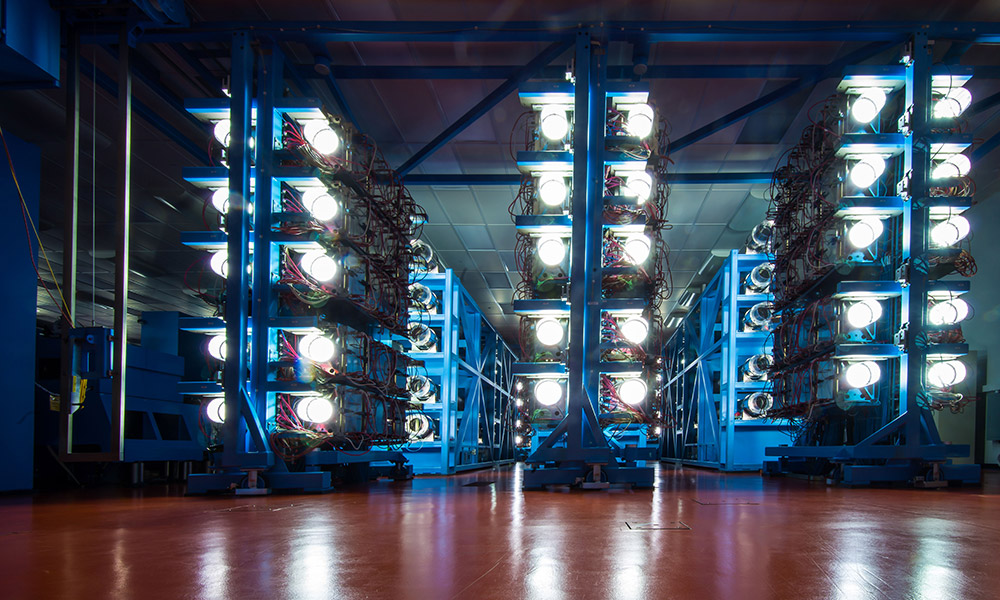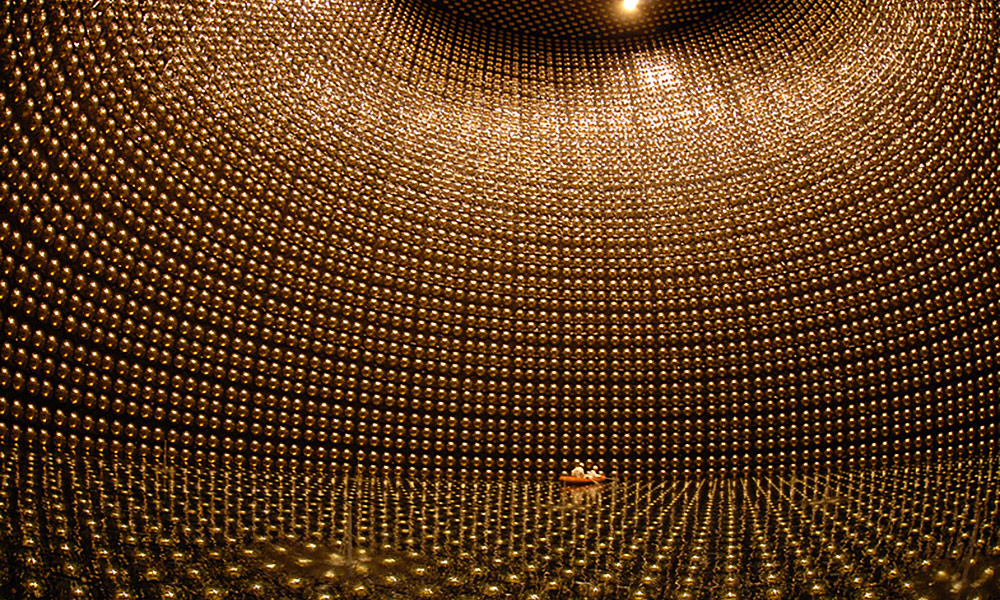Members of a University of Rochester cosmology group who are a key part of a multi-institutional effort to create the most detailed 3-D map ever made of the universe are looking forward to the launch of the instrument later this year in Arizona.
The team—Regina Demina, professor of physics; Satya Gontcho A Gontcho, postdoctoral research associate; Segev BenZvi, assistant professor of physics; and Kelly Douglass, visiting assistant professor of physics and astronomy—are working on the Dark Energy Spectroscopic Instrument (DESI) project, an initiative to provide a more comprehensive look at dark energy and how it's influencing the expansion of the universe. The instrument—including the 5,000 robotic positioners of the telescope's focal plane (above)—will capture data from 35 million galaxies, potentially providing insight about the life cycle of galaxies and about the cosmic web that connects matter in the universe.
The Lawrence Berkeley National Laboratory, the lead institution on the project, announced on June 1 that DESI was complete and was moving toward its startup.
Read more about Rochester's team. 